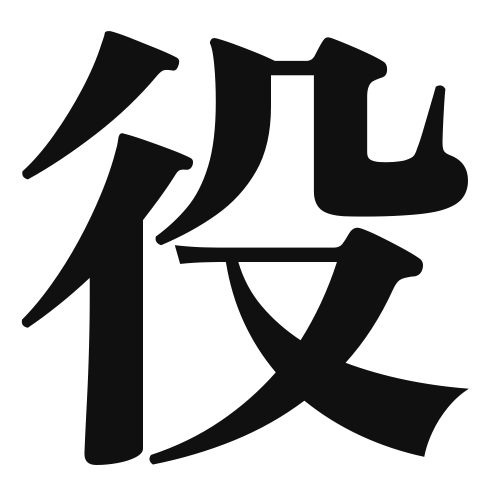1. Overview of Meaning
The kanji “役” (yaku) primarily means “role” or “duty.” It refers to a function or responsibility that someone has in a particular context, such as in a play, job, or social situation.
2. Formation and Radical
Formation of the Kanji: The kanji “役” is a phonetic-ideographic character (形声文字). It combines the radical for “to speak” (言) and a phonetic component that suggests its pronunciation.
Radical: The radical of “役” is 言 (gen), which relates to speech or language.
3. Examples of Usage
Common Words and Phrases: Some frequently used words that include “役” are:
- 役割 (やくわり, yakuwari) – role
- 役人 (やくにん, yakunin) – government official
- 役立つ (やくだつ, yakudatsu) – to be useful
Example Sentences in Daily Conversation:
- 彼はこのプロジェクトの重要な役割を果たしています。
- (He plays an important role in this project.)
4. Synonyms and Antonyms
Similar Kanji: A similar kanji is “任” (にん, nin), which means “to entrust” or “to appoint.” While both kanji relate to responsibilities, “役” emphasizes the role itself, whereas “任” focuses on the act of assigning that role.
Opposite Kanji: An antonym could be “無” (む, mu), meaning “none” or “without,” which indicates the absence of a role or duty.
5. Cultural and Historical Background
Relation to Japanese Culture: The concept of “役” is significant in Japanese culture, where roles and responsibilities are often emphasized in social and professional settings.
Proverbs and Idioms: One common saying is “役に立つ” (やくにたつ, yaku ni tatsu), which means “to be of help” or “to be useful,” highlighting the importance of fulfilling one’s role effectively.
